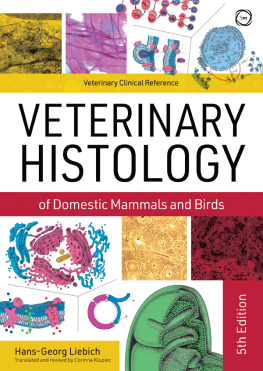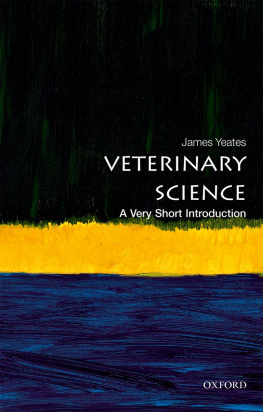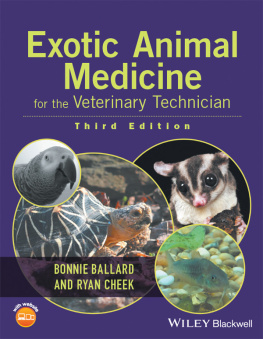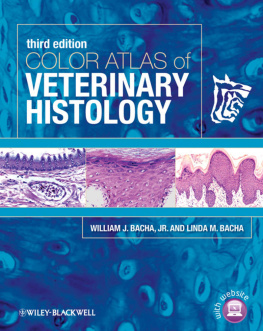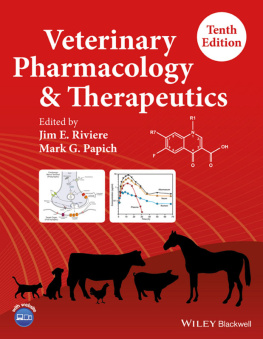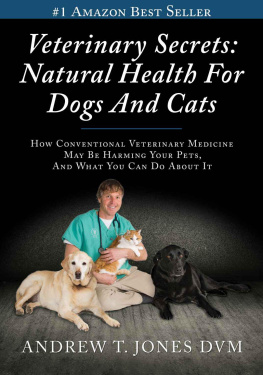VETERINARY MEDICINE
Veterinary Medicine
A Guide to Historical Sources
PAMELA HUNTER
Freelance Archivist
First published 2004 by Ashgate Publishing
Published 2016 by Routledge
2 Park Square, Milton Park, Abingdon, Oxon OX14 4RN
711 Third Avenue, New York, NY 10017, USA
Routledge is an imprint of the Taylor & Francis Group, an informa business
Copyright 2004 Pamela Hunter
The author has asserted her moral right under the Copyright, Designs and Patents Act, 1988, to be identified as the author of this work.
All rights reserved. No part of this book may be reprinted or reproduced or utilised in any form or by any electronic, mechanical, or other means, now known or hereafter invented, including photocopying and recording, or in any information storage or retrieval system, without permission in writing from the publishers.
Notice:
Product or corporate names may be trademarks or registered trademarks, and are used only for identification and explanation without intent to infringe.
British Library Cataloguing in Publication Data
Hunter, Pamela
Veterinary medicine: a guide to historical sources. (Studies in British business archives)
1. Veterinary medicine History Sources Bibliography
I. Title
016.6'3608909
Library of Congress Cataloging-in-Publication Data
Hunter, Pamela, 1967-
Veterinary medicine : a guide to historical sources / Pamela Hunter.
p. cm. (Studies in British business archives)
Includes bibliographical references and indexes.
ISBN 0-7546-4053-1 (alk. paper)
1. Veterinary medicineGreat BritainSources. I. Title. II. Series.
SF610.8.H86 2003
636.089'0941dc22
2003063713
ISBN 9780754640530 (hbk)
Contents
by Professor Roger Cooter
Never before have animals attracted so much attention from politicians, economists, academics, scientists, health experts, environmentalists, ethicists and the public at large. Whether as products for consumption or companionship, for military or humane practical application, for hunting or for sport, and whether in zoos, abattoirs, research stations or pits for mass disposal, animals and their relations to humans have become headline news. In one way or another, moreover, almost all of these areas of concern implicate biomedical conceptions and medical professional interventions. For this reason, among others, the history of veterinary medicine opens a window on more than merely a hitherto largely neglected branch of medicine. And it does more than supply a means to illuminate a wide variety of issues around knowledge production, professional practice and training, the development of state science, the trade in animal products and national and international agreements and regulations. It also provides a means to reflect on much of what is crucial to contemporary society, economy, politics and culture.
Veterinary Medicine: a guide to historical sources is therefore as timely as it is invaluable. The enormous range of archival material it surveys renders it a unique resource that will be of incalculable benefit to historians for generations to come. Along with its companion electronic database (compiled by the Business Archives Council on behalf of the Wellcome Trust between 1999 and 2001), the Guide now provides the essential starting point for documenting the long history and professionalisation of veterinary medicine. It will be found indispensable for studying the vicissitudes of both public and private practice in this area of medicine, for enquiry into the responses to animal epidemics and disease, for understanding the manufacture and marketing of veterinary products and, not least, for analysing the many different kinds of animal-human interactions that have existed among and between farmers, trade associations, pet keepers, zoo keepers, local authorities, scientists, government agencies and commissions, charities, the armed forces and animal welfarists among myriad others.
To the Business Archives Council and the Wellcome Trust we are indebted for the Guides production. For gathering all the data, writing the entries and assembling them with consummate skill, Pamela Hunter, above all, deserves hearty congratulations. No labours are more prized than these.
Roger Cooter
The preparation of this Guide would have been impossible without the co-operation of the veterinary profession. The Royal College of Veterinary Surgeons took an active interest in the project from the outset and did everything in its power to ensure its success. In particular I would like to thank Tom Roper and the staff of the RCVS Library who have been unfailingly kind and helpful. They gave me unlimited access to their resources, checked details on numerous veterinary practices and veterinary surgeons and suggested several new lines of enquiry.
I also owe a huge debt to all those veterinary surgeons who took time out of their exceedingly busy lives to provide me with details of the records they hold. Many were kind enough to show me round their place of work and these visits were always both informative and hugely enjoyable. Although a number of retired veterinary surgeons were no doubt surprised to find me on their doorstep after little or no warning, they too were never anything other than welcoming and the information they provided gave me a valuable insight into the development of their profession over the last 60 years. Many of the practice histories rely heavily on their memories. I would also like to thank both Robert Mares, who introduced me to the archives of the Royal Army Veterinary Corps and provided a wealth of information on the history of veterinary medicine within the armed services, and Derek Lyons, who alerted me to sources for a number of Britains leading zoos.
Archivists and librarians based at record offices, specialist repositories, veterinary colleges and research establishments across the country have been immensely helpful. I am aware that they have spent considerable amounts of time compiling lists and checking entries for me and I am grateful to them all.
I thank the Business Archives Council for its support. I am also indebted to Alison Turton and Lesley Richmond, editors of the Studies in British Business Archives series, who have given me much needed guidance from the start. A big thank you is also due to Professor Derek Oddy who has been unfailingly encouraging and supportive (with Merlot when necessary) throughout.
I would of course be deluding myself if I thought that I had produced a volume that was entirely free of errors. I hope, however, that they are few in number and minor in nature and take full responsibility for them all.
Pamela Hunter
Although the fortunes of man and beast have been bound together since early times, the evolution of veterinary medicine in Britain, both as a science and as a profession, has taken place only within the last two hundred years or so. The gradual progression from practitioner to professional, from doctoring to science, was dependent on a myriad of social, economic, political and scientific changes, all of which were necessary to drive progress forward and shape its path.
EARLY ANIMAL MEDICINE



